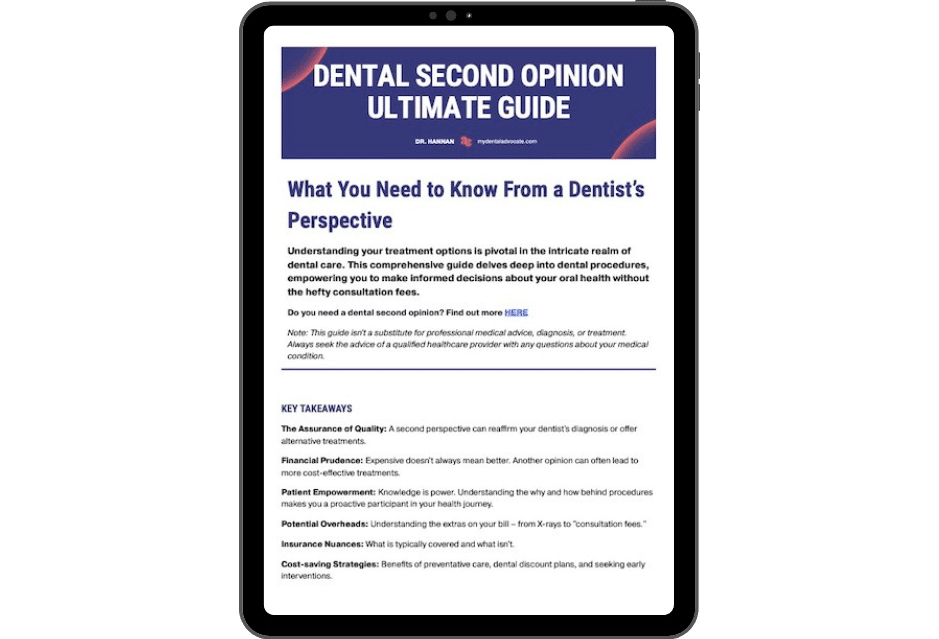Understanding the Parts of a Dental Implant (Comprehensive Guide)
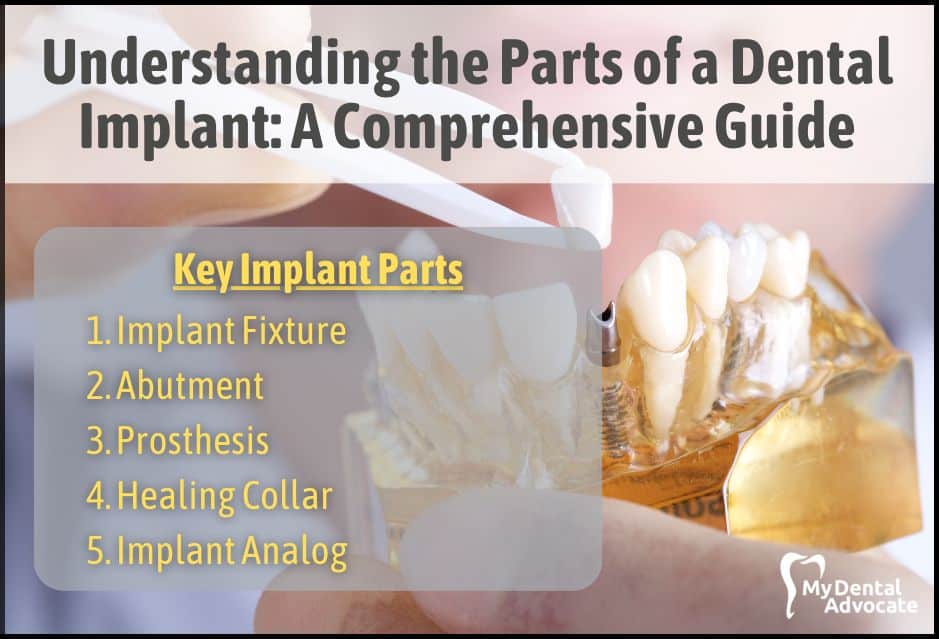
Dental implants, a durable solution for missing teeth, comprise three essential parts: the implant, abutment, and crown.
The implant replaces the tooth root, the abutment connects the implant to the crown, and the crown replicates the appearance of a natural tooth.
Dental implants provide a long-term approach to maintaining oral health by enhancing appearance, speech, and eating comfort.
Recommended Reading: Dental Implants | The Ultimate GuideNeed Dental Advice? Ask Dr. Hannan!
5 Parts of a Dental Implant
Regarding dental implants, there are three main parts for fabrication. In addition, there are two parts used for healing and impression. Understanding each component and its function can help you better understand the implant process and how it can benefit you.
Implants function like natural teeth and, with proper care, can last a lifetime. They’re suitable for individuals who’ve lost teeth due to injury, decay, or disease or those dissatisfied with dentures or bridges.
Here are the main parts of a dental implant:
1. Implant Fixture (or Body)
The implant fixture, also known as the implant body, is the part of the implant surgically placed into the jawbone. It is typically made of titanium, a biocompatible material that fuses well with bone tissue.
The fixture is designed to replace the missing tooth’s root and provide a stable foundation for the rest of the implant.
Recommended Reading: 12 Best Dental Implant Brands 2023 (Dentist’s Perspective)2. Abutment
The abutment is the connector piece that attaches to the implant fixture and protrudes from the gum line. It is typically made of titanium or zirconia and is designed to support the prosthesis or crown.
The abutment is screwed or cemented onto the implant fixture and can be customized to fit the unique shape of your mouth.
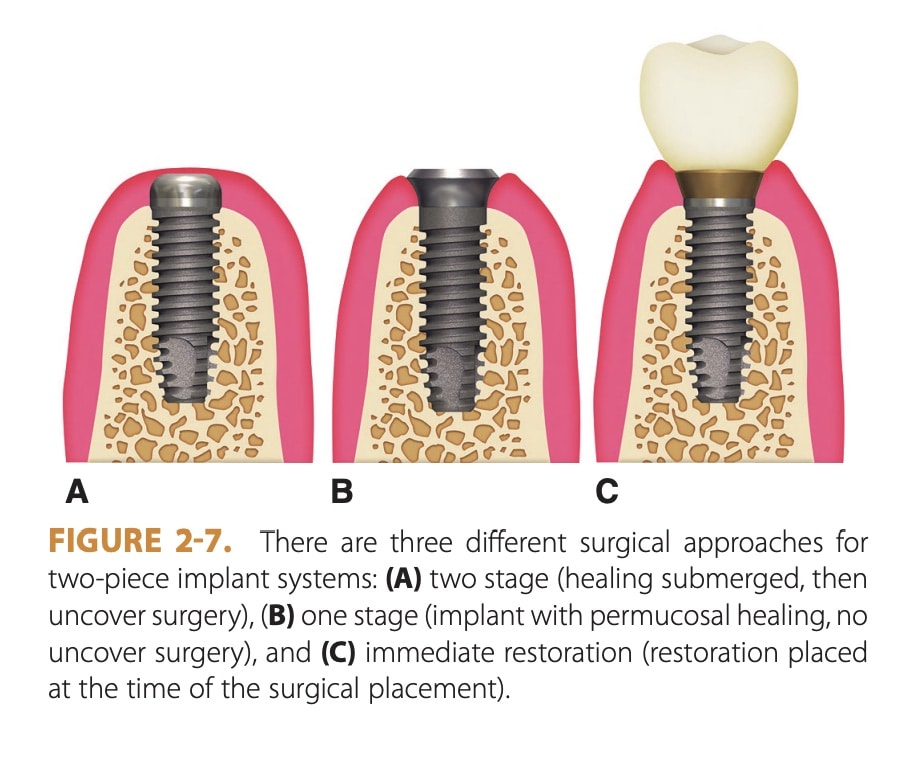
3. Prosthesis (or Crown)
The prosthesis, also known as the crown, is the visible part of the implant that looks and functions like a natural tooth.
It is typically made of porcelain or ceramic and is custom-made to match your other teeth’ color, shape, and size.
The prosthesis is attached to the abutment using a screw or cement and is designed to be durable and long-lasting.
4. Healing Collar (or Healing Cap)
The healing collar, also known as the healing cap, is a temporary piece placed on the implant fixture after it is surgically placed in the jawbone.
It is designed to protect the implant and prevent gum tissue from growing over it while it heals. The healing collar is typically removed after a few weeks and replaced with the abutment.
5. Implant Analog
The implant analog replicates the implant fixture used in the dental laboratory to create the prosthesis or crown. It is designed to fit onto the abutment and provide a precise replica of the implant fixture for the dental technician to work with.
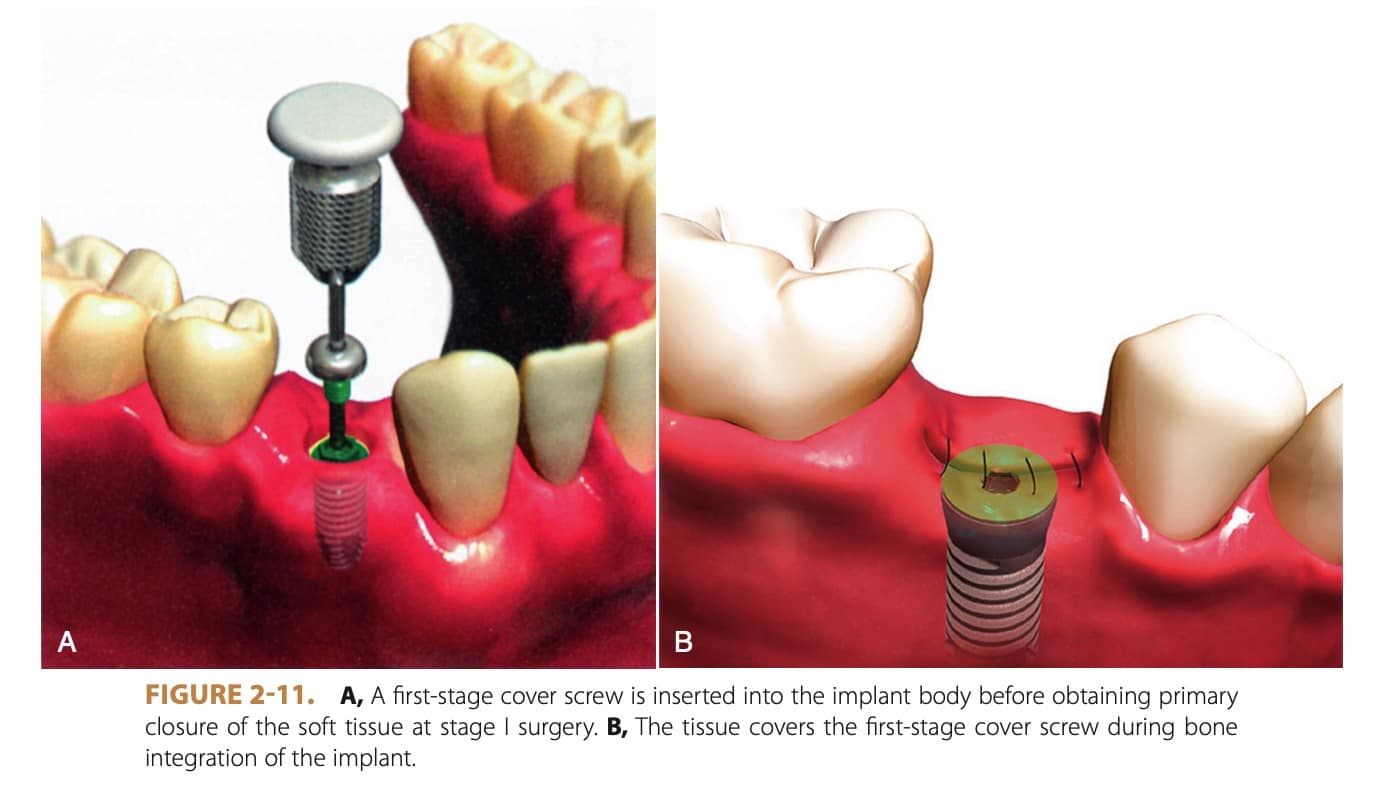
In summary, the parts of a dental implant include the implant fixture, abutment, prosthesis, healing collar, and implant analog.
Each piece plays a crucial role in the overall function and appearance of the implant.
What Implants are Best?
When choosing the right dental implant, there are several factors to consider. This section will discuss implant systems, brand and manufacturer, and cost.
Recommended Reading: 17 Foods to Avoid After Dental Implants (17 Foods to Eat)Implant Approach
The approach to dental implant placement varies, falling mainly under immediate and conventional implants.
Immediate implants, as the name suggests, are placed in the jawbone immediately after tooth extraction, reducing the overall treatment time. However, this method requires adequate bone quality and quantity at the extraction site.
Conventional implants, on the other hand, involve a more drawn-out process. After tooth extraction, a healing period is allowed for the jawbone, followed by implant placement. This method is often chosen when the extraction site needs bone grafting or healing time before implant placement.
Your dental professional will guide you in choosing the most suitable implant approach, considering your needs and jawbone condition.
Brand & Manufacturer
The brand and manufacturer of your dental implant play a pivotal role in ensuring your dental restoration’s longevity, functionality, and safety. Choosing a reputable and renowned brand assures high quality, rigorous safety standards, and advanced implant technology.
A few industry-leading brands and manufacturers include Nobel Biocare, Straumann, and Zimmer Biomet.
- Nobel Biocare: A Swiss company known for pioneering implant-based dental restorations, offering individual dental implants and complete mouth restoration solutions.
- Straumann: Globally recognized Swiss brand renowned for precision, reliability, and a wide range of dental implant systems, backed by research and innovation.
- Zimmer Biomet: An American company with a strong global presence, known for a comprehensive range of dental implant systems and advanced biomaterials, focusing on implant design and surface technology innovations.
It’s essential to note that your dentist’s expertise and familiarity with a specific brand are critical factors in your implant’s success. Dentists tend to recommend brands they have extensive experience with and have demonstrated reliable results in their hands.
Always discuss with your dentist to determine the best implant system for your specific circumstances.
Recommended Reading: The Dairy Dilemma: Can Consuming Dairy Products Impact Dental Implant Success?Financial Considerations
The cost of dental implants is influenced by various factors, such as the type of implant, the quantity needed, and the geographical location of the dental practice.
While dental implants may carry a higher upfront cost compared to other tooth replacement solutions, their durability, longevity, and effectiveness often outweigh the initial investment. Evaluating the long-term advantages against the immediate costs of dental implants is vital.
Remember that your dental insurance might cover some of the dental implant expenses. Your dental professional can assist you in understanding your insurance coverage and exploring potential financing options.
Specialists Involved in Implant Placement
When getting a dental implant, you may encounter a few specialists. These specialists include oral and maxillofacial surgeons, periodontists, and prosthodontists. Each specialist has their own unique set of skills and expertise that are essential for implant placement.
General dentists can elect to take implant training classes enabling them to perform implant procedures as well. However, the extent of training varies, and some general dentists may be equipped to handle more complex cases, while others may only tackle straightforward implant cases.
Oral and Maxillofacial Surgeon
An oral and maxillofacial surgeon specializes in mouth, jaw, and face surgery. They are often the ones who perform the actual implant surgery. During your initial dental exam, the surgeon will examine your mouth and jaw to determine if you are a good candidate for an implant.
They will also review your medical history to ensure safe implant surgery.
Periodontist
A periodontist is a specialist in treating gum disease and other conditions that affect the gums and supporting structures of the teeth. They are often involved in the implant process because healthy gums are essential for success.
Before the implant surgery, the periodontist will examine your gums to ensure they are healthy and disease-free. If there are any issues with your gums, they will need to be treated before the implant can be placed.
Prosthodontist
A prosthodontist is a specialist in the restoration and replacement of teeth. In addition, they are often involved in the implant process because they are responsible for creating the abutment and crown attached to the implant post.
After placing the implant post, the prosthodontist will take impressions of your mouth to create a custom abutment and crown. They will also ensure that the abutment is set correctly on the implant post to ensure a proper fit.
General dentists are also trained to fabricate the implant abutment and dental crown, particularly if they have received additional education and training in restorative dentistry.
This involves learning about the detailed anatomy and function of teeth and mastering the technique of fabricating dental prosthetics like abutments and crowns.
Once the implant post is in place and the surrounding tissue has healed, the general dentist or prosthodontist will take detailed impressions of your mouth. This helps ensure the custom-made abutment and crown will fit perfectly with your bite and align correctly with your other teeth.
Frequently Asked Questions (FAQ)
What factors should be considered when choosing a dental implant?
When choosing a dental implant, you should consider the approach to dental implant placement, the brand and manufacturer of the implant, and the cost. The two main approaches include immediate implants, placed right after tooth extraction, and conventional implants, placed after a healing period post-extraction. Brands like Nobel Biocare, Straumann, and Zimmer Biomet have reputations for quality and safety. Regarding cost, while dental implants may have a higher upfront cost, they are durable and long-lasting, often outweighing the initial investment in the long term.
What specialists are involved in the implant placement process?
In the process of implant placement, several specialists may be involved. These can include oral and maxillofacial surgeons who perform the actual implant surgery, periodontists who ensure the gums are healthy for implant success, and prosthodontists who are responsible for creating the abutment and crown. In some cases, general dentists with additional implant training may also perform implant procedures.
How long do dental implants last?
With proper care, dental implants can last a lifetime. This longevity is a key advantage of dental implants over other tooth replacement solutions. However, the success of an implant relies not only on the patient’s oral hygiene but also on the skills and experience of the dental professional performing the implant procedure.
My Experience & Expertise
With numerous dental implants successfully restored throughout my career, I possess a comprehensive understanding of diverse implant systems.
In addition, our journey through the complete guide to understanding the parts of a dental implant has armed us with a deeper understanding of this revolutionary dental procedure.
Each component is crucial in creating a functional and aesthetically pleasing replacement for missing teeth, from the implant fixture and abutment to the dental crown.
But, as we’ve learned, the success of a dental implant isn’t just about these parts but also about the skills and experience of your dental professional.
As you consider dental implants, remember this knowledge, and engage in informed discussions with your dentist to ensure the best possible outcome for your oral health.
Need a second opinion? We can help! Learn more. Knowledge is power when cultivating healthy dental habits. The more informed you are, the better positioned you’ll be to prevent avoidable and potentially costly dental procedures for you and your family. Watch for future blog posts, where we’ll continue sharing important information, product reviews and practical advice!

About the Author
Dr. Matthew Hannan, also known as “Dr. Advocate,” is a board-certified dentist on a mission to provide accurate dental patient education. He attended Baylor University before completing dental school at UT Health San Antonio School of Dentistry. He now lives in Arizona with his beautiful wife and 4 kids. Dr. Hannan believes everyone should access easy-to-read dental resources with relevant, up-to-date dental research and insight to improve their oral health.

Connect with Dr. Hannan!
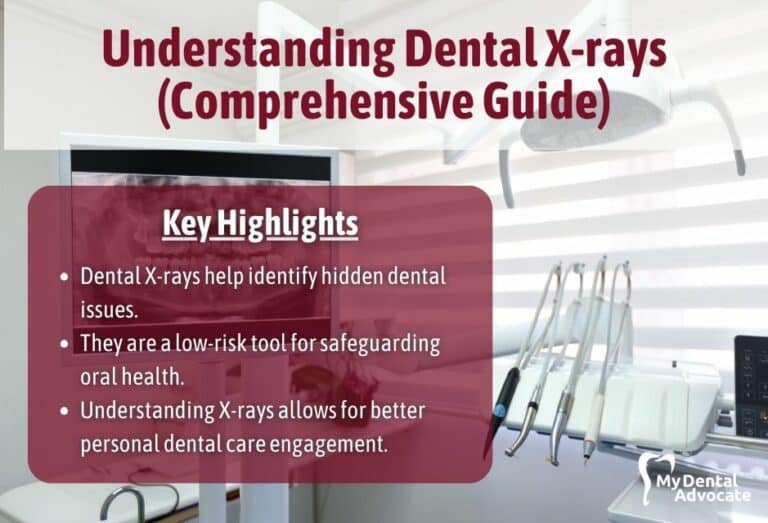
Understanding Dental X-rays (Comprehensive Guide)
Dental X-rays are a window into the hidden aspects of your oral health, revealing issues not visible during a regular exam. They’re a safe, low-radiation tool that provides crucial insights for diagnosis and treatment. Understanding your X-rays empowers you to participate in your dental care, ensuring you’re well informed about your oral health.

5 Best Alkaline Mouthwash 2024 (Dentist Recommended)
Oral health is not just about pearly whites and fresh breath. The pH level in the mouth plays a crucial role in determining overall dental well-being. With the modern diet often leaning towards the acidic side, an alkaline mouthwash can be a game changer, helping to neutralize excess acid, and providing a protective shield against tooth decay and gum disease.

Philips Sonicare 9500 vs. 9750 Electric Toothbrush Review 2024
Welcome to the ultimate face-off in oral hygiene—the Philips Sonicare 9500 vs. 9750 Electric Toothbrush showdown! If you’ve been on the fence about which top-tier toothbrush to invest in, you’re in the right place.
Gain Clarity with Our FREE Second Opinion Guide
Receive clear, expert second opinions online within 48 hours. Start today!
Product Reviews
Our 250+ dental product reviews (and counting), curated by an experienced dentist, are the most comprehensive online.
Toothbrush Genie
State-of-the-art chatbot designed to help you discover your perfect toothbrush in just a few simple steps!
Cavity Risk Assessment
Cutting-edge digital tool designed to evaluate your individual cavity risk based on your responses to a series of questions.
Gum Disease Assessment
Discover your gum disease risk with our quick and engaging 6-question assessment!


